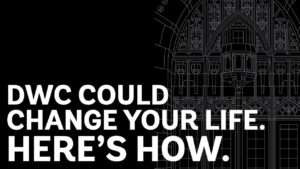by The Cowl Editor on September 13, 2019
Opinion

by Alyssa Cohen ’21
Opinion Staff
The controversy over the definition of “Western Civilization” and the need to broaden the scope of the DWC curriculum has been a hotly contested topic on campus over the past several years.
Last semester Providence College held a forum to discuss the meaning of Western Civilization and how its definition correlates with the curriculum of DWC. The workshop, entitled “The Misuses of Western Civilization,” was comprised of a panel of DWC professors led by Dr. Alexander Moffett, director of the DWC program. The panel discussed the impact of white supremacy upon present culture and its potential anti-Islamic implications in the DWC classroom in light of the recent Christchurch shooting in New Zealand. This discussion amongst professors and students particularly illuminated the need for a more standardized, diversified DWC curriculum.
The majority of professors on the panel emphasized the importance of acknowledging the racial implications of the DWC texts and reading from numerous perspectives, such as female perspectives, as frequently as possible. They also underscored the value of each DWC seminar engaging in conversations about race and gender, in order to abolish the “us versus them” attitude and acknowledge the existence of white privilege as well as its impact on the development of Western civilization and our present society and culture.
Many professors on the panel emphasized how incorporating a multitude of perspectives in the program would provide students with a more honest, panoramic, and ethical view of the development of Western civilization.
Such professors also highlighted how the expansion of the program’s scope of study could strive to combat the fear, stereotyping, and ostracization of “the other” present in the Providence College community and in American culture at large.
Essentially, this dialogue illuminated a discord within the DWC program—depending upon a student’s professors, some sections of DWC read a diversity of narratives and examine the texts through different gender, cultural, and racial lenses while other sections maintain the teaching of a narrow, white, male-centric perspective.
Anna Lane ’21, A DWC student in the Honors Program, described her sections of DWC as being taught through a more culturally “panoramic” lens.
“We read works last year like Incidents in the Life of a Slave Girl by Harriet Jacobs to analyze a genuine firsthand account of the experiences of a female African American Slave and critiqued the white supremacy embedded in texts like Oroonoko by Aphra Behn in our seminar discussions,” said Lane.
Conversely, Vasco Medeiros ’21, recounted a different experience with the DWC program, as he explained how his DWC 102 team taught through a scope he dubbed “microscopic.”
“Nearly every text we read was written from a white, male, and in the majority of cases, Catholic perspective. In fact, I think Shakespeare’s The Tempest may have been the only non-religious work we read all semester,” said Medeiros.
Clearly, Lane’s experience with DWC, through studying a diversity of cultural and gender perspectives helped her achieve a more complete and accurate view of the establishment of the Western world from that which the program provided to Medeiros. As underscored by the stark contrasts between Lane and Medeiros’ educational experiences with the College’s DWC program, the need for a more standardized, diversified curriculum across all DWC teams proves essential in providing each of the College’s students with the intricate humanities background the program boasts.
According to PC’s website, DWC is promoted as a program in which a student will “explore human history through many perspectives—from literature to philosophy to theology to art, and more.”
If the College truly strives to accomplish the sentiment touted within this mission statement, the need for a more inclusive and diverse curriculum is irrefutable.
Standardizing the inclusion of different gender, ethnic, cultural, socioeconomic, and religious perspectives within the curriculum of DWC will enable PC to better accomplish the goals it defines for the DWC program. Teaching, analyzing, and criticizing the broad scope of human history through a variety of lenses enables intellectual, empathic, and social growth within an individual.
To that end, the diversification of the DWC curriculum could aid the College in developing the next generation of more informed voters, well-rounded employees, and compassionate individuals that our society so desperately yearns for.